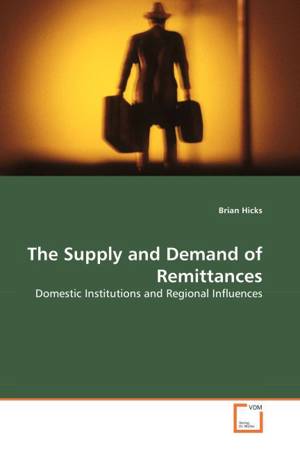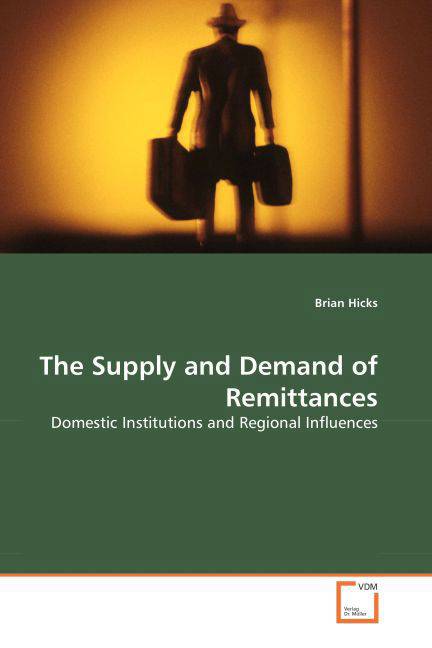
- Afhalen na 1 uur in een winkel met voorraad
- Gratis thuislevering in België vanaf € 30
- Ruim aanbod met 7 miljoen producten
- Afhalen na 1 uur in een winkel met voorraad
- Gratis thuislevering in België vanaf € 30
- Ruim aanbod met 7 miljoen producten
Zoeken
The Supply and Demand of Remittances
Domestic Institutions and Regional Influences
Brian Hicks
Paperback | Engels
€ 67,45
+ 134 punten
Omschrijving
Many countries are dependent upon capital flows for their balance of payments accounts. While the determinants of foreign direct investment and portfolio investment have been extensively explored, the analyses of remittance flows from host to home countries are largely lacking. Factors predominantly not considered are domestic institutions which support or encourage international remittance exchange. Nations desire to control international immigration and capital movement. Consequently they adopt domestic policies which create institutions that manage both capital and labor mobility across borders. Additionally, researchers commonly neglect to consider the impact of both supply & demand factors simultaneously, or in other words, the domestic condition (home and host) which both push and pull migrants to migrate and remit. Further, given the non-dyadic nature of the data, there arises a need to regionalize'' the data. Controlling for existing explanations and regional influences. I find that domestic institutions have a significant impact on the ability of an individual to migrate to a host country and to eventually remit back to their country of origin.
Specificaties
Betrokkenen
- Auteur(s):
- Uitgeverij:
Inhoud
- Aantal bladzijden:
- 76
- Taal:
- Engels
Eigenschappen
- Productcode (EAN):
- 9783639308044
- Verschijningsdatum:
- 3/03/2011
- Uitvoering:
- Paperback
- Afmetingen:
- 152 mm x 220 mm
- Gewicht:
- 122 g

Alleen bij Standaard Boekhandel
+ 134 punten op je klantenkaart van Standaard Boekhandel
Beoordelingen
We publiceren alleen reviews die voldoen aan de voorwaarden voor reviews. Bekijk onze voorwaarden voor reviews.








